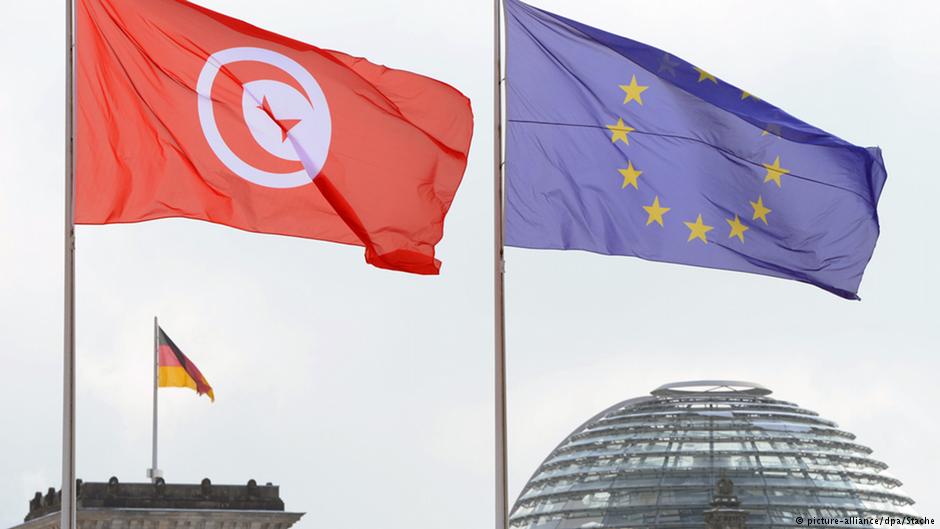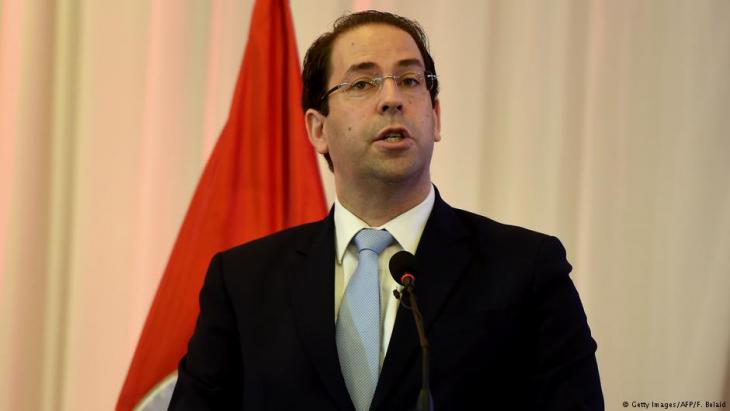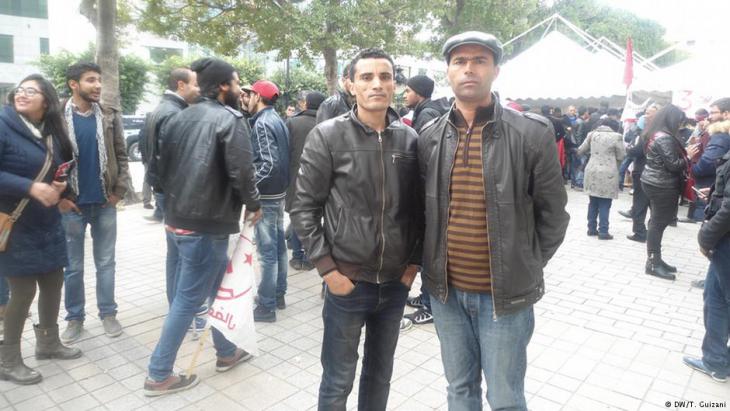Bolster the young democracy!

As the 2011 Arab Spring's last remaining beacon of hope, Tunisia is the only nation to have stepped onto the rocky road of a democratic transition process that continues to this day.
In the wake of Ben Ali's ousting, the North African country has reached many milestones – introducing, for example, a new constitution, free parliamentary and presidential elections, party pluralism and political freedoms; others remain works in progress, e.g. an independent constitutional court and free local authority elections, planned for May 2018.
This challenging period of upheaval was further exacerbated by a series of terror attacks in 2015 and 2016. Tunisia′s economic situation, in particular, reached crisis point and is only now beginning to recover, albeit at a very slow pace. The social situation, however, remains strained, something that is evidenced by regular outbreaks of civil unrest, most recently in January 2018. The drop in living standards witnessed since 2011 – rising prices, persistently high unemployment rates – has also impacted the nation's middle class.
The government, led by Youssef Chahed and in power since August 2016, is not only trying to get a handle on the economic and financial crisis, it has also launched a campaign to tackle widespread corruption and stem high rates of tax evasion. Many Tunisians, however, see little evidence of success in these endeavours, while being forced to accept the ongoing deterioration of their own living standards.
No "revolution returns"
Meanwhile, a growing number of voices are to be heard harking back to the supposedly "good old times" under the authoritarian and corrupt Ben Ali regime. There is a sense across large sections of the civilian population, as well as the nation's political and business class, that despite having made continued, considerable sacrifices for the democratic transition process, they have not seen any "revolution returns" to date.

And, in the wake of global euphoria for the "Tunisian Spring", there is also a sense that international interest in Tunisia's destiny has subsided and that the nation has either been more or less left alone to cope with its post-revolutionary difficulties, or that it is being unjustly criticised.
That the European Union, of all organisations, chose to blacklist Tunisia as a tax haven in late 2017, was perceived by the Chahed government in particular as curt disregard for and non-recognition of its reform efforts to date. Since then, relations with Brussels have been more than tense, although on a diplomatic level, Tunisia is making every effort to limit the damage.
Tunisia was removed from the list in January 2018, but the next debacle followed in February 2018, when the EU parliament refused to remove Tunisia from the blacklist of countries that pose a money-laundering or terrorism financing risk. For the young and still fragile democracy, which has also had to battle with economic and financial crises since the terror attacks of 2015, bad news like this is a major setback. Prime Minister Youssef Chahed decided, among other things, to sack the governor of the country's central bank.
Recourse to instruments of the Ben Ali dictatorship?
Owing to persistently insufficient foreign investment and tourist numbers, concerns about the damage to Tunisia's global image are now so great that there are plans to resurrect the external communication agency "Agence tunisienne de communication exterieure" (ATCE). The structure of the organisation, feared under the Ben Ali regime, would be altered in its new form.
The ATCE functioned like a kind of propaganda authority that took repressive action against media critical of the regime, bribed foreign journalists and massively controlled and manipulated information about the regime and Tunisia with respect to foreign countries (including monitoring emails and tracing IP addresses).

Following the Tunisian revolution in 2011, the ATCE was dissolved in 2012. Journalists and the journalists' trade union "Syndicat National des Journalistes Tunisiens" (SNJT) are warning against a return to old methods. And indeed, media freedoms won in 2011 would be threatened by the reinstatement of the ATCE. Government representatives, on the other hand, cite the example of other nations currently investing in international image campaigns, such as Morocco.
Fairer trade relations
Irrespective of this, a largely positive and appreciative image of Tunisia prevails in both the international community and international reporting, something that is de facto also reflected in the ongoing granting of credits, transformation grants, funds or special programmes on the part of international donors, not forgetting EU institutions and EU member states.
So there exists a certain misalignment between Tunisia's perception that it is disadvantaged and the actual financial support given to it by the EU. Nevertheless, the EU must ask itself whether the economic and trade relations it is offering Tunisia are really expedient and not primarily motivated by self-interest.
Between an EU-28 (511 million residents) and the nation of Tunisia (11 million residents), significant economic disparities and unbalanced political power structures do of course exist. This is not about the EU ploughing additional millions into the Tunisian transition, but much more a case of how the structural disparity can be absorbed more effectively and trade relations organised more fairly. The latter would give the Tunisian economy the chance to develop dynamically and sustainably once again, thereby furnishing it with the means to square up to its social challenges.
Unfortunately, ever since the refugee crisis and the wave of terror attacks in Europe, the EU′s main focus has been on co-operating more closely with Tunisia over security issues, namely combatting terrorism and "preventing migration". Rather than bolstering the Tunisians′ liberal young democracy, however, this merely adds grist to the reactionaries′ mill.
Isabel Schafer
© Qantara.de 2018
Translated from the German by Nina Coon
